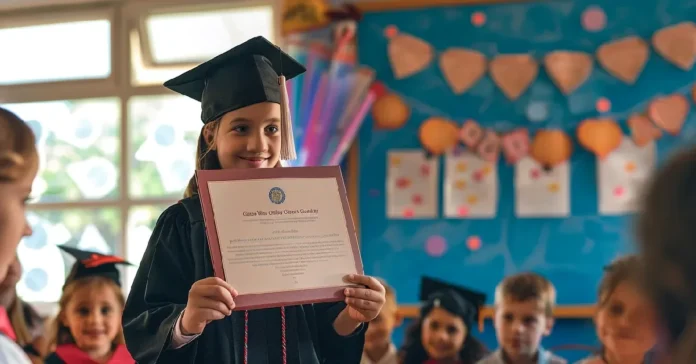Forging a career in early childhood education is not only rewarding, but it’s also a field brimming with possibilities. With an AAS in Early Childhood Education, a treasure trove of career pathways opens up, each contributing to the cognitive and emotional development of young learners. These roles are foundational for creating a positive impact on society by nurturing the growth of its youngest members. If you are contemplating a career that combines passion with purpose, an AAS in Early Childhood Education might be your stepping stone to a fulfilling professional journey.
Below, we explore the extensive opportunities this degree can offer.
Unlocking Career Opportunities With an AAS in Early Childhood Education
An Associate of Applied Science in Early Childhood Education equips graduates with a combination of theoretical knowledge and practical skills. This qualification can potentially lead to roles in preschools, childcare centers, and various educational settings. Notably, professionals with this credential are regarded as vital for the foundational development of children’s social, cognitive, and physical skills.
The curriculum for an AAS in Early Childhood Education typically includes child development theories, classroom management, and curriculum design, which are essential for creating engaging and educational environments. As the demand for qualified early childhood educators continues to grow, an AAS can be a solid investment for a stable and impactful career.
For those looking to balance work and study, Early Childhood Care & Education online classes offer a flexible path to obtaining this valuable degree. Such programs cater to both aspiring educators and those seeking to upgrade their qualifications while maintaining their current employment.
Diverse Classroom Settings: Exploring Your Work Environment Options
Early childhood education isn’t confined to a traditional classroom setting. Educators can find themselves working in a variety of environments that accommodate different teaching styles and educational approaches. Each setting provides unique experiences and opportunities to apply one’s expertise.
Public or private preschools are common workplaces, but early childhood professionals can also explore opportunities in Head Start programs, private childcare, or special education settings. Each offers a different community and set of resources, requiring adaptability and a tailored approach to teaching and learning.
Additionally, family home care and community centers are also viable options, allowing educators to work in more intimate or community-based environments. Here, educators often have a smaller group of children, which can lead to strong, individual-focused relationships.
Advancing in the Early Childhood Education Field
With a foundational AAS degree, there are opportunities for advancement within the early childhood education field. Many educators build upon their initial qualifications by seeking further certifications or specializing in areas such as special education, bilingual education, or educational technology.
Furthermore, pursuing a bachelor’s or master’s degree can open doors to higher positions in administration, like becoming a program director or a policymaker in education. These roles allow for a broader impact on the educational system and the chance to influence policy and curriculum on a larger scale.
Continuing education is not just about climbing the career ladder; it also enriches the educator’s teaching practice. Advanced knowledge and skills can lead to enhanced classroom effectiveness, allowing educators to provide the highest quality education to their students.
Continuing Education and Professional Development for Early Childhood Educators

The field of early childhood education is ever-evolving, and staying abreast of the latest research and teaching methodologies is crucial. Continuing education and professional development are integral to maintaining relevance and effectiveness as an educator.
Professional development can take many forms, including workshops, conferences, and additional coursework. These opportunities allow educators to keep their skills sharp, network with peers, and learn from experts in the field. They contribute to a culture of lifelong learning that benefits both the educator and their students.
Some educators may also choose to focus on research or contribute to professional organizations. This engagement can lead to improvements in teaching practices and policies that benefit the wider educational community.
Overall, an Associate of Applied Science in Early Childhood Education is a versatile qualification that opens many doors for those passionate about making a positive impact on children’s lives. From teaching young minds to leading educational initiatives, the opportunities for fulfilling and dynamic careers in this field are as wide-ranging as they are rewarding.


